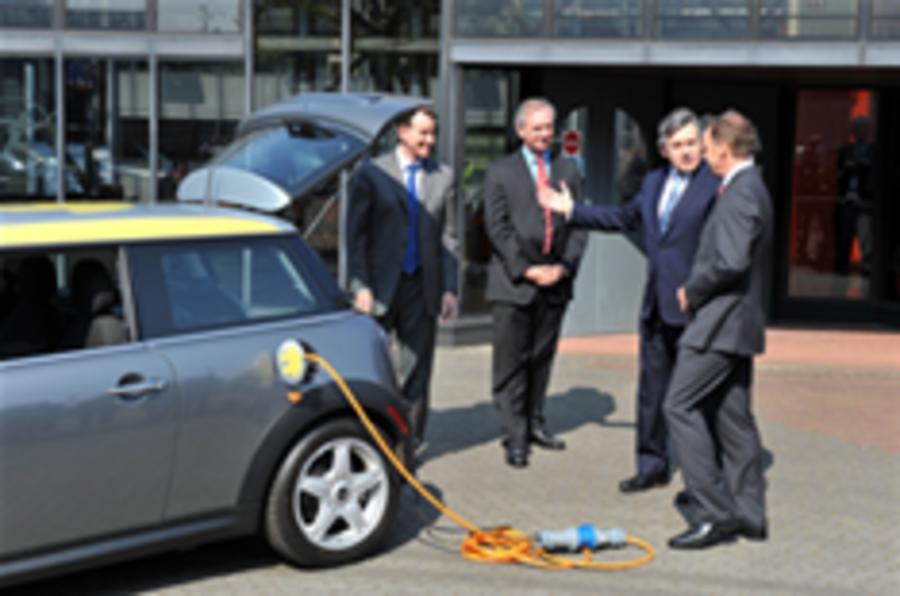Nationwide road pricing would replace fuel duty if the government’s electric car revolution is a success, it is feared.
Ministers have unveiled a £250m plan, due to start in 2011, that would see incentives of up to £5000 for consumers to buy electric cars.
Read about the government's electric car plans here
Rivals slam electric car scheme
But the Treasury currently makes an estimated £22bn from fuel duty and £5bn from road tax (from which electric cars are exempt), and it will want to recoup lost revenue.
AA representative Paul Watters told Autocar: “Fuel duty is a big sum overall and we cannot bury our heads in the sand and expect a free lunch. If electric cars become mainstream then the government will make up the lost money with road pricing.”
The government also faces a string of problems that will need to be addressed if the scheme is to take off; one issue is how to recycle or dispose of the batteries on a large scale.
Professor Nick Vaughan, head of automotive engineering at Cranfield University, warned that the current recycling system will not be able to cope and could take years to develop.
“It doesn’t look good from a recycling point of view,” he said. “It’s okay with small batteries for mobile phones, but when you scale up for cars it becomes a big problem and we simply don’t have the recycling infrastructure in place at the moment.
“You would need to develop new technology and throw a lot of money at it; I doubt the government can do this by 2011.”
Despite assurances that the current grid could cope with a dramatic rise in electric car usage, most power stations burn fossil fuels, which also emit pollution. Green energy sources like wind power are unlikely to generate enough power, leaving nuclear power as a likely candidate.
It is estimated that if every car in the UK went electric then the country would need eight more power stations the size of the Sizewell B plant just to run them.
“There is a reduced carbon footprint in using fossil fuel power stations but they are not ideal,” said Vaughan. “By 2015 we would need an alternative to produce electricity and we couldn’t make enough electricity from wind and wave power, so we would probably need more nuclear power.”






Add your comment